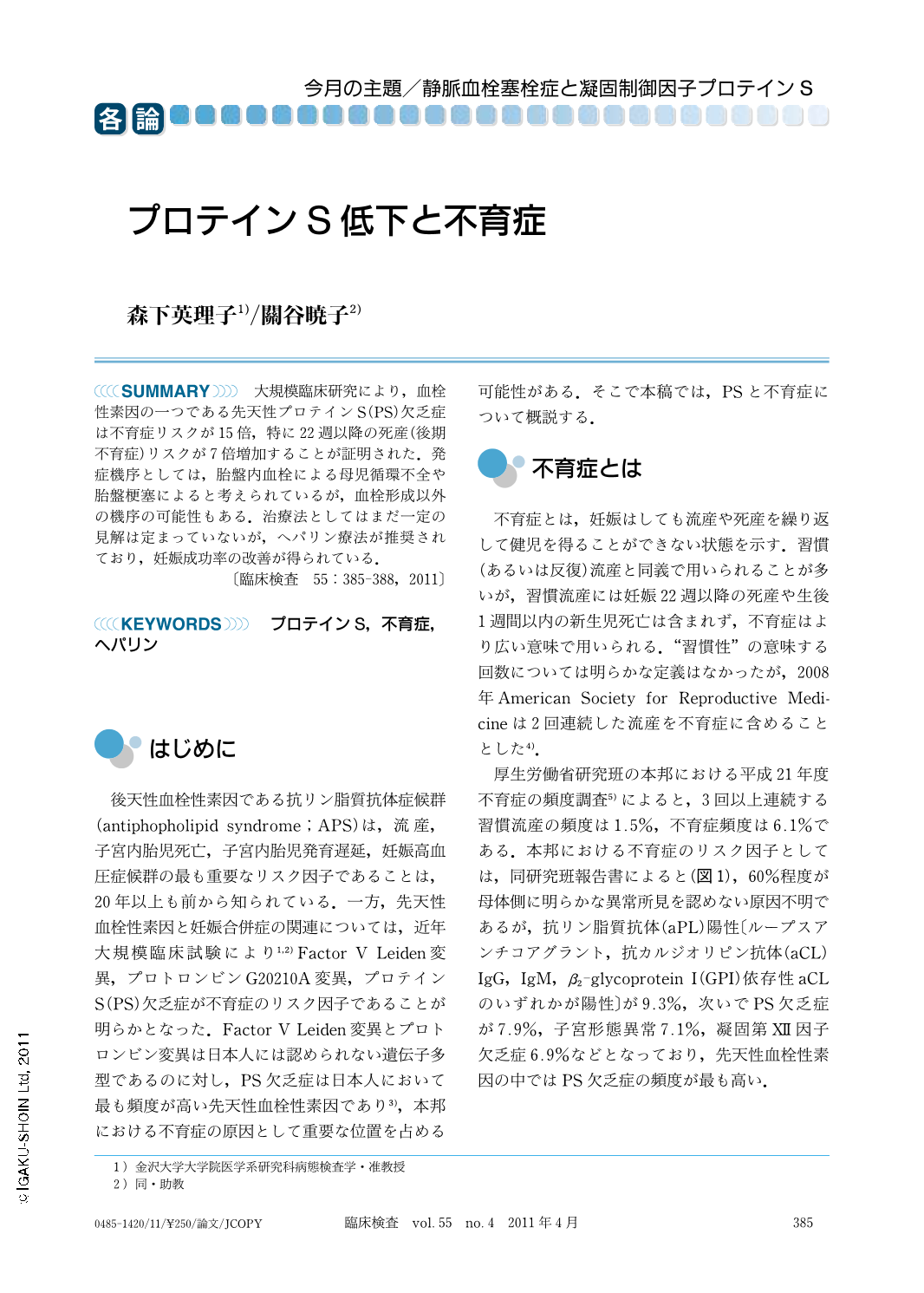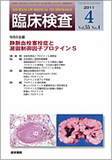Japanese
English
今月の主題 静脈血栓塞栓症と凝固制御因子プロテインS
各論
プロテインS低下と不育症
Protein S deficiency and fetal loss
森下 英理子
1
,
關谷 暁子
1
Eriko Morishita
1
,
Akiko Sekiya
1
1金沢大学大学院医学系研究科病態検査学
1School of Health Sciences, College of Medical, Pharmaceutical and Health Sciences, Kanazawa
キーワード:
プロテインS
,
不育症
,
ヘパリン
Keyword:
プロテインS
,
不育症
,
ヘパリン
pp.385-388
発行日 2011年4月15日
Published Date 2011/4/15
DOI https://doi.org/10.11477/mf.1542102595
- 有料閲覧
- Abstract 文献概要
- 1ページ目 Look Inside
- 参考文献 Reference
大規模臨床研究により,血栓性素因の一つである先天性プロテインS(PS)欠乏症は不育症リスクが15倍,特に22週以降の死産(後期不育症)リスクが7倍増加することが証明された.発症機序としては,胎盤内血栓による母児循環不全や胎盤梗塞によると考えられているが,血栓形成以外の機序の可能性もある.治療法としてはまだ一定の見解は定まっていないが,ヘパリン療法が推奨されており,妊娠成功率の改善が得られている.
Inherited protein S (PS) deficiency is the leading cause of maternal thromboemobolism and associated with an increased risk of adverse pregnancy outcomes including second- and third-trimester feta loss. Recently, the meta-analysis has revealed that PS deficiency is associated with recurrent fetal loss (OR 14.72) and late non-recurrent fetal loss (OR7.39). Pregnant patients with PS deficiency require full therapeutic heparin therapy throughout pregnancy.

Copyright © 2011, Igaku-Shoin Ltd. All rights reserved.


